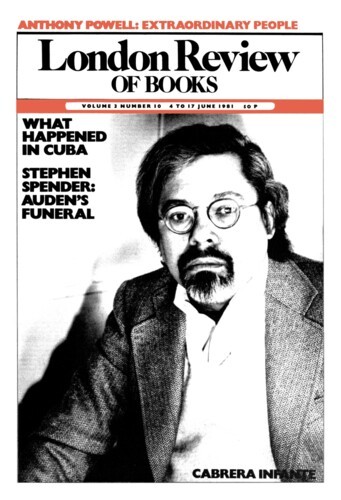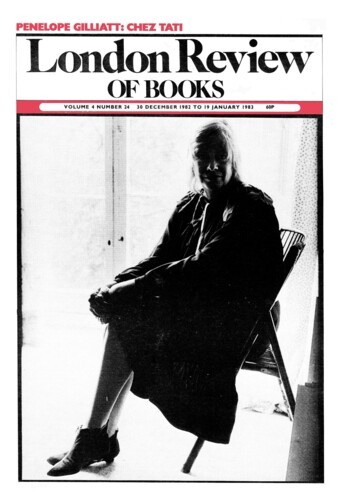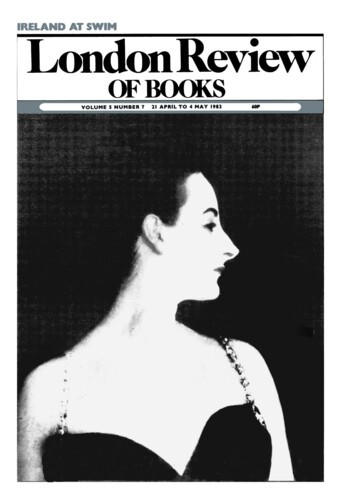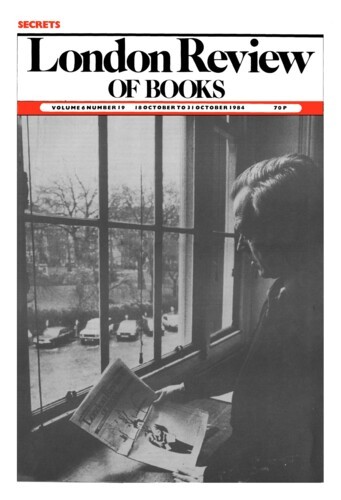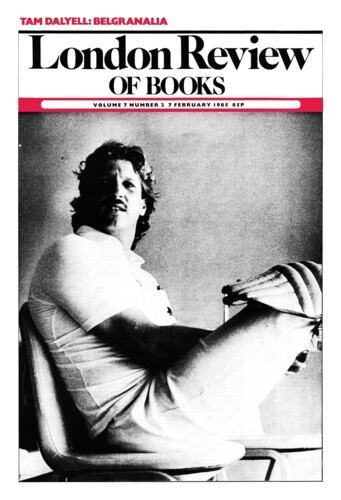Blueshirt
Seamus Deane, 4 June 1981
In July 1933, at the height of his involvement with the Blueshirts, the Irish Fascist organisation, Yeats wrote: ‘It is amusing to live in a country where men will always act. Where nobody is satisfied with thought … The chance of being shot is raising everybody’s spirits enormously.’ However invigorating the prospect, the fulfilment did not come. In Ireland, the Ireland of the Free State, the serious shooting had stopped. The most notable engagement between Irish Fascists and Republicans took place in Spain, during the Civil War; even that had a comic aspect, being entirely accidental. Still, Ireland in the Thirties did seem to retain the capacity for virile action, attractive to a certain disposition, which Yeats had finely described some forty years earlier as ‘that love of force common among a certain type of literary men. The impatience of minds trained to see further than they can go …’ Standish O’Grady was the victim of that analysis, but there is the possibility of a choice irony in turning it upon Yeats himself. Societies in which ‘men will always act’ are clearly preferable, if you are a reader or rereader of Nietzsche (as was Yeats in 1936-7), to ‘sacerdotal aristocracies’ in which there prevail, as The Genealogy of Morals tells us, ‘habits which, averse as they are to action, constitute a compound of introspection and explosive emotionalism, as a result of which there appears that introspective morbidity and neurasthenia, which adheres almost inevitably to all priests at all times.’
